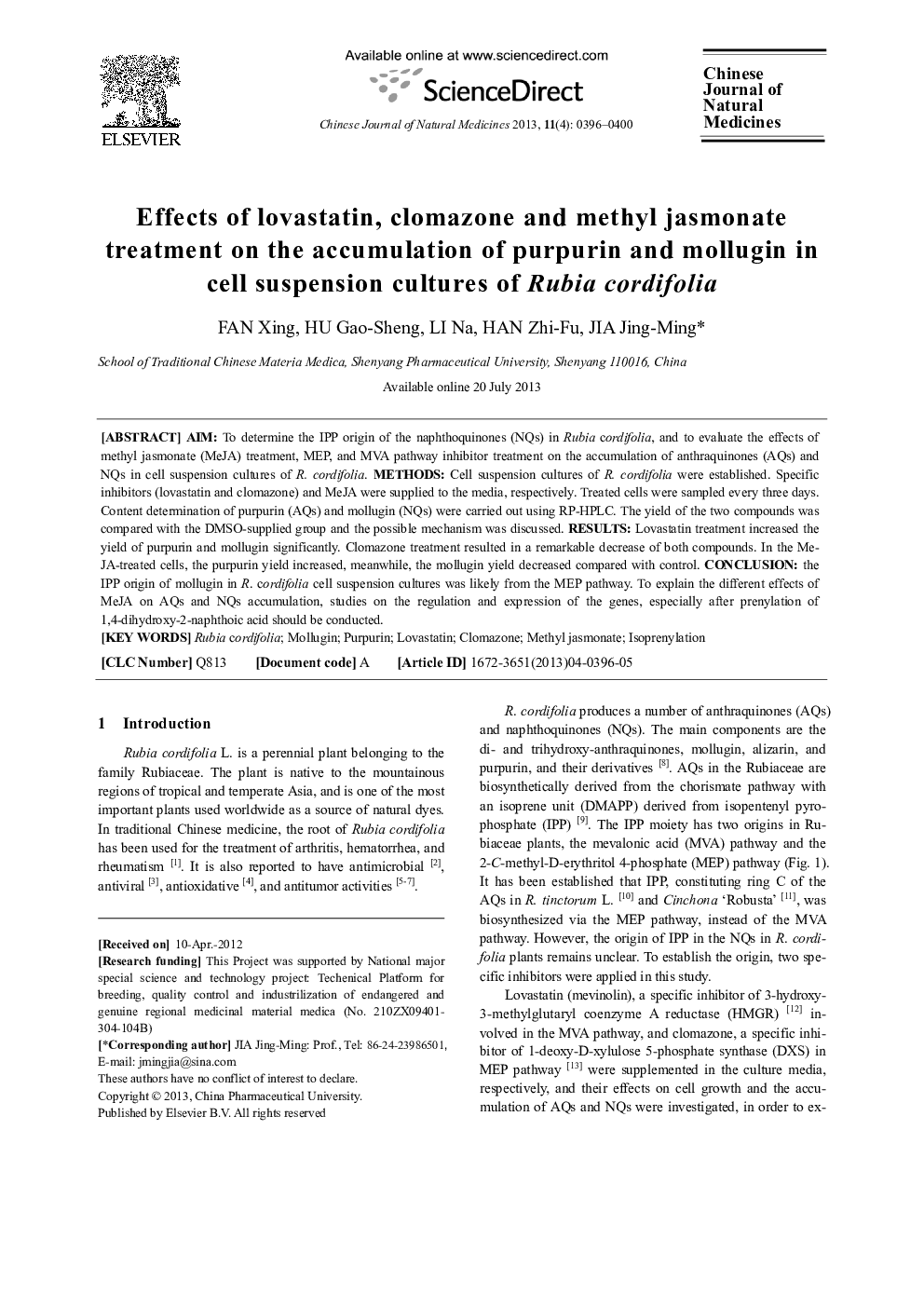| کد مقاله | کد نشریه | سال انتشار | مقاله انگلیسی | نسخه تمام متن |
|---|---|---|---|---|
| 2526724 | 1558040 | 2013 | 5 صفحه PDF | دانلود رایگان |

AimTo determine the IPP origin of the naphthoquinones (NQs) in Rubia cordifolia, and to evaluate the effects of methyl jasmonate (MeJA) treatment, MEP, and MVA pathway inhibitor treatment on the accumulation of anthraquinones (AQs) and NQs in cell suspension cultures of R. cordifolia.MethodsCell suspension cultures of R. cordifolia were established. Specific inhibitors (lovastatin and clomazone) and MeJA were supplied to the media, respectively. Treated cells were sampled every three days. Content determination of purpurin (AQs) and mollugin (NQs) were carried out using RP-HPLC. The yield of the two compounds was compared with the DMSO-supplied group and the possible mechanism was discussed.ResultsLovastatin treatment increased the yield of purpurin and mollugin significantly. Clomazone treatment resulted in a remarkable decrease of both compounds. In the MeJA-treated cells, the purpurin yield increased, meanwhile, the mollugin yield decreased compared with control.ConclusionThe IPP origin of mollugin in R. cordifolia cell suspension cultures was likely from the MEP pathway. To explain the different effects of MeJA on AQs and NQs accumulation, studies on the regulation and expression of the genes, especially after prenylation of 1,4-dihydroxy-2-naphthoic acid should be conducted.
Journal: Chinese Journal of Natural Medicines - Volume 11, Issue 4, July 2013, Pages 396-400